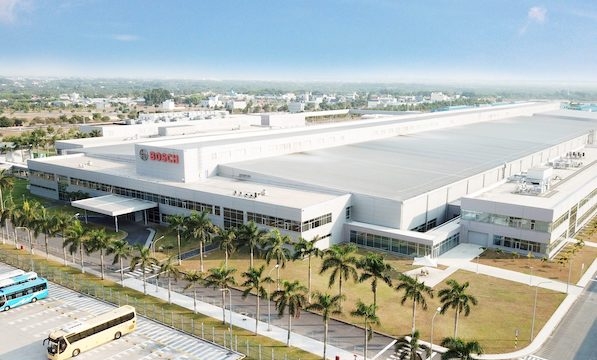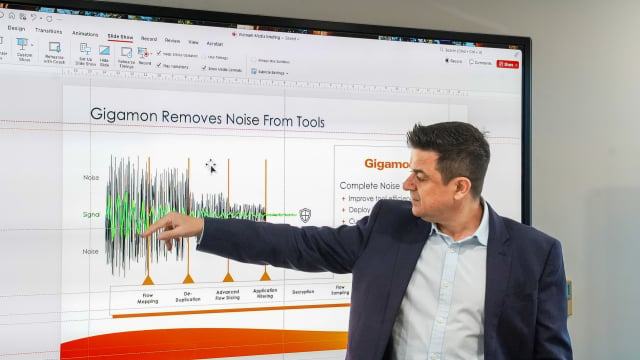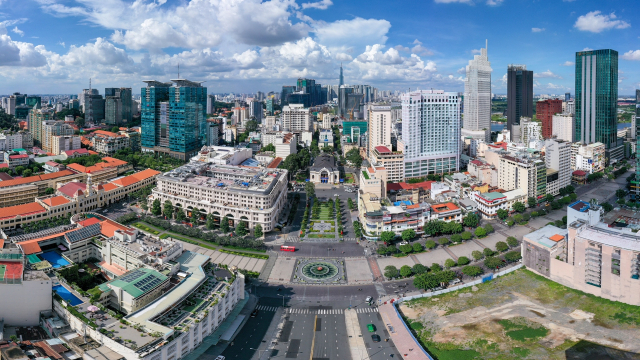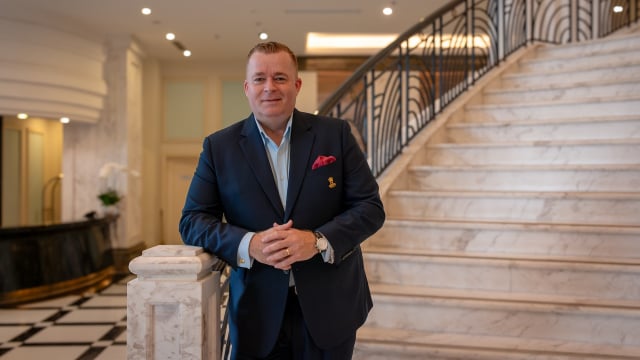Leader Talk
Lessons from failure of former Leflair CEO
After the situation with Leflair’s bankruptcy spiraled down, it took almost a year for the startup to exit and be acquired by SoPa. But giving up wasn’t part of the option.

In his first public appearance, former Leflair CEO Loïc Gautier, who now works as chief marketing officer at Society Pass, opens up about the Nasdaq-listed acquisition of Leflair.
Leflair was one of Vietnam’s most promising e-commerce startups when it launched in 2015. Its mission to sell international luxury brands at sale prices through its website proved to be successful, thanks to Vietnam’s growing middle class and its appetite for high-end consumer goods. It was a go-to destination for fashion and beauty products for nearly five years.
But in May 2020, after Covid-19 forced border closures and Vietnam’s economy took a nosedive, Leflair filed for bankruptcy, and co-founder and CEO Loïc Gautier flew back to France. A few months later, police in Vietnam summoned Loïc to return to Vietnam to address complaints from unpaid creditors.
“I did not leave the country because of these allegations but instead to be closer to people who are important to me during the outbreak of Covid-19. I can’t come back because borders are closed,” said Loïc in a webinar hosted by Vietcetera in August 2020.
After a tumultuous year, Leflair made a surprising comeback in September after it was acquired by tech firm Society Pass (SoPa).
"We have acquired the ownership of the Leflair brand in light of the core values it has built in Vietnam over the past five years and will continue to carry into the future," COO of Society Pass Ray Liang.
In his much-awaited first public appearance since 2020, Loïc wore a charcoal gray suitcoat and dark blue pants, his slicked-back hair a little longer. He looked more relaxed and collected and reflected on his recent learnings as he starts over.
Sustainability becomes key to retaining manufacturing talent
Dealing with consequences
From the time Leflair stopped operations in February 2020, Loïc, his co-founder Pierre-Antoine Brun and what was left of their team went through long months of darkness.
When a business files for bankruptcy, one would expect that the higher-ups would show sympathy and make the process smoother to somehow take some of the burdens of an entrepreneur’s shoulder, he said. That couldn't be more wrong.
“We’re dealing with a system that obviously does not make it easy for companies that are running out of money to get away with the hard times,” said Loïc.
The team persevered, and by the end of 2020, Loic already had several discussions with Society Pass and other people interested in acquiring some of Leflair’s assets.
“When you are running through difficult times, people see opportunities to get a piece of your company that was once successful, said Loïc.
SoPa’s offer, which would allow Leflair to be rebuilt instead of being completely taken down, and to leverage its assets altogether to again create value, was seen as the “best possible outcome to all stakeholders.

Leflair’s future with SoPa
Society Pass, which debuted on Nasdaq in November, is an acquisition-focused company building an ecosystem of tech-enabled companies in the Fashion, Beauty, Travel, and F&B verticals.
Leflair and all other companies in the region under SoPa now have access to a large amount of capital through the US stock market.
“We leverage the fact that we are now a US-listed company, and to integrate those companies that otherwise may not have opportunities to sell their companies, or connect with VCs,” explained Loïc.
The reality is 80 per cent of the time, companies never get acquired, he said. If you’re a Vietnamese or Southeast Asian founder, the chances of getting an exit or return for shareholders or long-time employees are very slim. SoPa creates value for future companies it will integrate into its ecosystem: a chance to exit, and a chance to join an ecosystem that will help them reduce acquisition costs and acquire new customers. This then also creates value for existing customers through greater advantages.
Learnings from the past
“I’m a very different person and entrepreneur right now than I was just two years ago,” Loïc said. After the situation with Leflair’s bankruptcy spiraled down, it took almost a year for the startup to exit and be acquired by SoPa. But giving up wasn’t part of the option.
In the face of uncertainty, Loïc remained resilient, taking calculated moves as he determined the next steps for Leflair.
“If I had not put myself in a position to make a deal happen, this outcome could never have happened. Don’t be too emotionally attached to what was once a great company and focus on what it could become again,” Loïc said.
Taking up SoPa’s offer was the best decision to make, promising a long-term, sustainable approach to the growth of Leflair.
“There is value in patience and balance,” Loïc pointed out. His previous mantra of “go big or go home” doesn’t always produce the most ideal results, as he learned after Leflair. Today, with all that he’s learned from the experience, he believes that finding the right balance in business can take an entrepreneur and his business farther.
“Maturity serves you well,” he affirmed.
European enterprises see bright future in Vietnam
Vietnam turns semiconductor vision into action
The global semiconductor industry is being reshaped by geopolitical tensions, shifting supply chains, and the surge of digital technologies.
Cutting red tape in APA approvals to speed up tax negotiations
The change in APA approval authority is expected to shorten processing time and enhance business proactiveness in international tax negotiations.
Enterprise cybersecurity is under threat from the inside
As hybrid cloud systems grow more complex, Vietnamese enterprises are struggling to detect cybersecurity threats moving laterally within their own networks.
Breakthrough for the international financial center ambition
The submission of the draft resolution on Vietnam’s international financial center to the National Assembly heralds a new developmental era for the country.
How leadership philosophy redefines hospitality in Nha Trang
More than just running a 5-star resort, Kristian Petersen is redefining the art of hospitality with a humane and sustainable leadership philosophy.
When organic becomes an inspiring wellbeing lifestyle
For Tyna Huynh, co-founder of Drinkizz, organic is not just a food choice but a way of life that fosters a deep connection between people, nature and community.












































